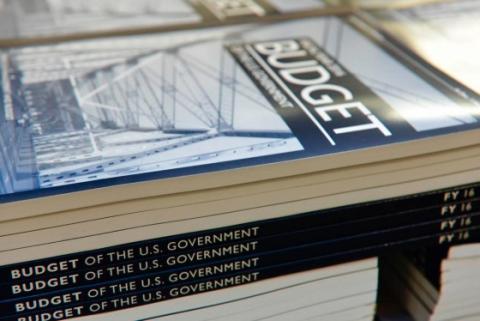
Why a balanced budget would be disastrous
Some Representatives are pushing for a vote in the House next week on a balanced budget amendment, which would amend the Constitution of the United States to require Congress to balance the federal budget every year. While this might not sound like such a bad idea in theory, it would be disastrous in reality. Take action now and urge your Representative to vote No on this amendment.
Why would it be so bad? Proponents argue that families and states have to balance their budgets, so the federal government should too. Let’s look at just a few of the reasons this proposal would be so harmful.
- A balanced budget amendment would be bad for people, especially low-income people. Such an amendment would cap spending equal to the amount of money the government takes in in that year. In addition, one proposal being considered would also cap spending at 20 percent of economic output, below current levels, and require a three-fifths majority in both chambers to raise taxes, effectively prohibiting tax increases. By doing so, a balanced budget amendment would force draconian cuts to Medicare, Medicaid, Social Security, education, child care, the environment, public safety, and countless other services and benefits that millions of families depend on.
- A balanced budget amendment would be bad for the economy. As our friends at the Center on Budget and Policy Priorities note, requiring a balanced budget every year, regardless of the state of the economy, could push weak economies into recessions, make recessions longer and deeper, cause very large job losses, and hurt long-term growth. Analysts at the economic forecasting firm Macroeconomic Advisers had concluded that if the BBA had been in effect in FY 2012, it would have added another 15 million people to the unemployment rolls, doubling unemployment from its actual rate of 9 percent in that year to 18 percent.
- A balanced budget amendment would be bad in times of emergencies. Because of the strict limits on spending and prohibition on borrowing contained within this amendment, the government would not have the flexibility to respond to natural disasters like the hurricanes, wildfires and floods we’ve seen in recent years. Millions of Americans could suffer because of this.
- A federal balanced budget amendment is much stricter than state requirements and family limitations. States and families are allowed to borrow money and use savings or rainy day funds to finance expenses. For families, this equates to things like mortgages for a home or student loans to finance education, or using savings to pay for college or a car. But the federal proposals would prohibit all borrowing and prohibit spending beyond revenues collected in that fiscal year.
These are just a few of the reasons why nearly 300 organizations, including many of CHN’s members, joined together to oppose a balanced budget amendment back in 2016. And it’s not just organizations like ours opposing this; members of both parties have called this out as a bad idea. Rep. John Yarmuth (D-KY), the top Democrat on the House Budget Committee, said in a statement,
“House Republicans bringing up a balanced budget amendment now is shameless. They just exploded our debt and deficits with more than $1 trillion of tax breaks for millionaires and corporations. Now they’re trying to use a balanced budget amendment to force massive cuts to Medicare, Medicaid, and other programs millions of families rely on.”
Even deficit hawk Sen. Bob Corker (R-TN), who called the spending levels in the FY18 omnibus “grotesque” because they were not paid for with offsetting cuts, tweeted about the balanced budget amendment, “[I]nstead of doing the real work, some will push this symbolic measure so they can feel good when they go home to face voters.”
The good news is that it would be a long road for a balanced budget amendment to actually become law, as amending the Constitution requires a two-thirds vote of the House and Senate followed by ratification from three-fourths of the 50 states. But the fact that House conservatives would be wasting precious time and resources on something like this that would cause drastic cuts to human needs programs, especially when there are so many other things they should be focusing on, is disappointing to say the least. And that they would bring up this amendment just months after giving away trillions of dollars to the wealthy and corporations is even more outrageous.
The bottom line is that a balanced budget amendment is designed to achieve balance by a drastic curtailment of federal services. Urge your Representative to vote against this amendment when it comes up for a vote next week.
For more information on why a balanced budget amendment would be so harmful, see these pieces from our friends at the Center on Budget and Policy Priorities, the American Federation of State, County, and Municipal Employees (AFSCME), and the Economic Policy Institute.
This post was originally published on the Coalition on Human Needs' blog, Voices for Human Needs. Receive similar articles in your inbox by subscribing today, and follow CHN on Facebook and Twitter.


The views and opinions expressed in this post are those of the author(s) and do not necessarily reflect those of MomsRising.org.
MomsRising.org strongly encourages our readers to post comments in response to blog posts. We value diversity of opinions and perspectives. Our goals for this space are to be educational, thought-provoking, and respectful. So we actively moderate comments and we reserve the right to edit or remove comments that undermine these goals. Thanks!